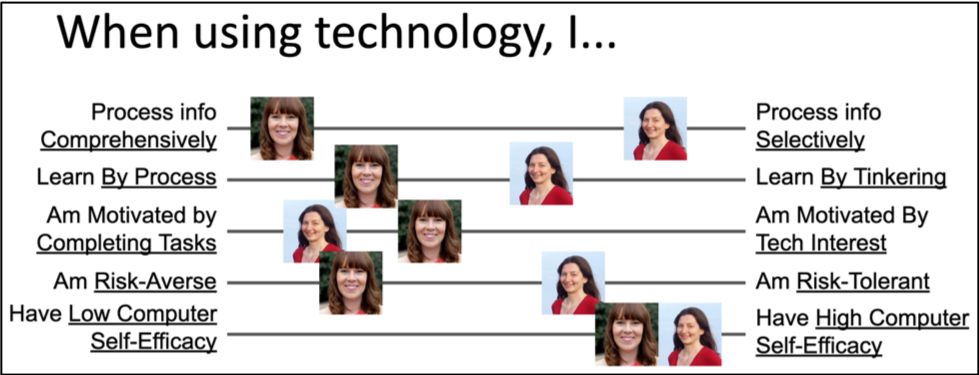Each year, the Oregon State University Ecampus Research Unit funds projects, up to $20,000 each, to support the research, development and scholarship efforts of faculty and/or departments in the area of online education through the OSU Ecampus Research Fellows program.
This program aims to:
- Fund research that is actionable and impacts student online learning
- Provide resources and support for research leading to external grant applications
- Promote effective assessment of online learning
- Encourage the development of a robust research pipeline on online teaching and learning at Oregon State
Fellows program applications are due Nov. 1 each year. If you are interested in submitting an application, reach out to Naomi Aguiar, the OSU Ecampus assistant director of research. Research Unit staff are available to help you design a quality research project and maximize your potential for funding.
Many Oregon State colleagues have had transformative experiences in this program. A Fellows study funded in 2020 highlights the ways in which these projects have advanced research in online/hybrid education, as well as Fellows’ programs of research.
Fellows program highlight
Funding recipients expand the inclusivity mindset of computer science students
Lara Letaw, an experienced online instructor and lead researcher from Oregon State’s School of Electrical Engineering and Computer Science, partnered with Heather Garcia, an OSU Ecampus inclusive instructional designer on a research study called “Impacting the Inclusivity Mindset of Online Computer Science Students.”
Together with their team, Letaw and Garcia implemented an intervention that was designed to improve feelings of gender inclusivity among online computer science students and to train these students to develop more gender-inclusive software applications.
In this intervention, online computer science students experienced new curriculum developed by Letaw and Garcia’s team. The curriculum was based on GenderMag, a software inspection method for identifying and correcting gender biases in software. Curriculum for teaching GenderMag concepts can be found on the GenderMag Teach website. Students completed a set of assignments and, if they chose to participate in the research study, questionnaires about inclusivity climate, both in the course and in the computer science major. Students’ software design work was also evaluated for the use of gender-inclusive principles.
The image below shows examples of the cognitive facet values people (e.g., Letaw and Garcia) bring to their use of software, shown across the spectra of GenderMag facets (information processing style, learning style, motivations, attitude toward risk, and computer self-efficacy).

Computer science students in the Ecampus courses Letaw and Garcia modified learned about their own cognitive styles and those of their teammates. They also built software that supports the cognitive diversity of software users. One student reflected, “Identifying my facet values was tremendously helpful [for articulating what had] been abstract… I feel much more confident.”
The results of their study showed that, overall, students felt included by the GenderMag curriculum (nobody felt excluded by it), it increased their interest in computer science, and it had positive effects on their team dynamics and self-acceptance. Students who completed the GenderMag intervention were also more effective in developing gender-inclusive software designs, and they reported greater recognition and respect for the diversity of software users.
The image below highlights what students considered when designing a software user interface before (left) and after (right) learning GenderMag concepts. As one student put it, “Now when I think of users using a piece of software I don’t picture them … just jumping in and tinkering … I am more aware that there are [people whose] interests in using a software … might not align with mine.”

As a result of this project, Letaw and Garcia published a paper in the ACM’s International Computing Education Research conference proceedings in 2021. This project contributed to a $300,000 National Science Foundation grant awarded to Oregon State’s Margaret Burnett, Letaw, and Kean University. With this funding from the NSF, they will partner on a project entitled, “Embedding Equitable Design through Undergraduate Computing Curricula.”
This Fellows project has also provided research opportunities for two female Ecampus computer science students (Rosalinda Garcia and Aishwarya Vellanki), a group that is typically underrepresented in STEM fields. Rosalinda Garcia successfully defended her honors thesis with these data in the spring of 2021, and Vellanki is currently working on her own.
Join the Ecampus Research Fellows Program
Learn more about the Fellows Program and what materials are needed to prepare your proposal.

